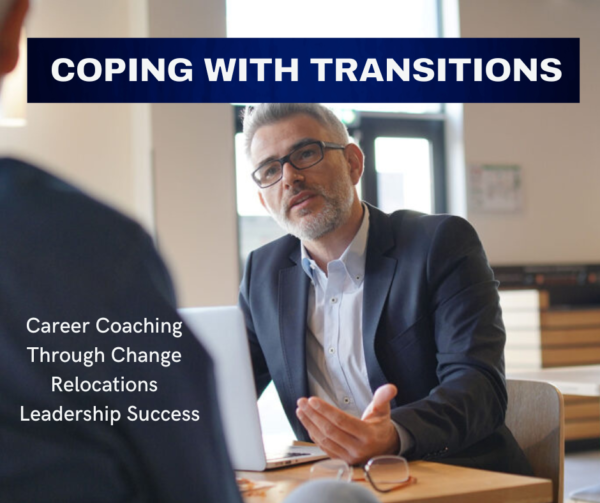
A Perspective on These Times
Life is not going back to “the ways it was.” It’s never going to be the same. It’s a hard truth and as much as you may wish to return to the former, more comfortable ways, everything is shifting. And the shifting continues.
Today, the demand is to be flexible and resilient as you navigate through these shifts–toward what will eventually become our “new normal.”
Because these shifts are both internal and external, because these shifts are massive, global, and happening at such great speed, it’s important that you ground and care for yourself. You have things you want to accomplish, experiences you want to experience, and contributions you want to make in this lifetime. So there’s “bigger work” to do–to steady yourself, to connect you to yourself and others, to help you stay open to possibilities often unexpected.
And unexpected options and change can feel terribly disruptive. Right now you and others you know may be resisting, balking, or fighting the change–trying to push through and control the “final” outcomes, Often behaving impulsively. Others may respond by “giving up” on their dreams. Often retreating in a way that is depression, addiction, or other escapism.
What’s important to know is that “You Can Do This Work” is demanded of all of us. That’s right. We’re all still in this together. It wasn’t just the pandemic we were all in together, Going through these shifts requires all of us.
Coaching support can help you through the transition.
Coaching expertise will help you evaluate your options so you pivot gracefully —so you create your new path.
So if you’re facing a challenge, coaching support can help you manage your thoughts and emotions, survey your options and take the best action steps.
In this article I suggest 11 ways to manage your thoughts and cope with transitions you may not have chosen.
Learn to take wise actions toward your future goals– in spite of these massive changes, that none of us could have anticipated.
We’ll explore the following topics…
- Understanding Choice Points and how to best handle them
- Navigating and managing thoughts and emotions through a transition
Handling Choice Points in Your Life
When you don’t choose a change in your personal or professional life, it can create internal and external upheaval. Such events result in a transition period of time—which again can be unsettling. Transitions are stressful, even when desired, and more so when imposed.
They are stressful especially when it’s not fully your decision. Like losing a job or a promotion. Being overlooked. Or when circumstances at home, or in your private life, interfere and make you less attentive at work.
Such events in our lives are choice points.
Sometimes it may feel impossible, but you want to work through any transition thoroughly and gracefully.
Thoroughly means 1.) Acknowledging, working with, working through your emotions, your feelings. 2.) Then the same thing with your thoughts. Initial thoughts, then more focused thoughts. 3.) When you do so, this results in more choice-driven, proactive, wise action steps.
Gracefully is the part that will leave you ultimately with a sense of having done your best, at this point in time, at this stage in your business, career, or personal life. That you have not made rash, reactive decisions that derail your life or career. So you come through the circumstance knowing you have behaved with grace and dignity.

Unexpected change feels disruptive. Coaching support can help you evaluate your options and pivot gracefully. So if you’re facing a challenge, coaching support can help you manage your thoughts and emotions so you survey your options and take the best action steps.
Managing Your Thoughts and Emotions
1. Feel but don’t wallow. You’ll probably go through a roller-coaster of feelings, so just allow them to roll and don’t cling on. Give them a time limit, then do something concrete, and practical. Writing in a notebook or journal can be helpful. Go for a run. Dump it, then move on. They will keep coming back for a while. So repeat the suggestions each time from time-limit to writing or running. Ruminating will only keep you stuck. Eventually, they will calm down.
2. Step up your self-care. Major changes are physically and emotionally taxing. Tiring. You need self-care now more than ever. Good food. Don’t overdo the alcohol or act out. Get extra rest.
Initial Thoughts
3. Don’t cling to your thoughts. Just like your emotions, your thoughts may be a roller-coaster for a time. Inner dialogue. Self-doubts or anger at others. Or swinging back and forth between the two. Don’t cling. Ride them out. Let them pass through. Mindfulness is key. Calm your fears and reinforce your sense of hope and happiness. Breathe. Give yourself the positive messages you’d like from a mentor or coach. Your coach can also help you with some additional tools and skills.
Initial Steps
4. Connect for support. Since your transition may affect your family as well, it may be wise to seek the outside support of a professional. Or friends, however…
5. Avoid the unwise or unsupportive for a time. Those who are threatened by, or jealous of, the changes to come can be a distraction if they do not handle it appropriately, and maturely. Once you’ve settled into the change you’ll be in a better place to talk or make a decision about connecting further.
6. Create your own rite of passage. Sometimes private and sometimes with others, ceremony and ritual help with all transitions. Friends can be helpful with letting go or moving-on rituals and embracing-the-new celebrations.
Gradually, More Purposeful Thoughts
7. Look back, to learn from experience. What went wrong, or right? What could you have done better? What worked really well? What do you need to let go of? What do you want to keep or embrace?
8. Let go of how things were “supposed to be.” So many people cling to how things “should be” or how they “want them to be.” This will slow you down now and all of your life. Focus on accepting “how things are.” Find appreciation for “what is.” And of course, focus on “what you can change.” Go forward. It’s the only way there is. It’s part of maturing. Eventually, it gets easier, better, and often more fun. Trust me.
9. Keep things in perspective. Or try on a new perspective. So you don’t get stuck.
10. Self-Assess. What are your strengths, weaknesses, and skills? How did those influence—positively or negatively—the change you are facing? Yup, those are going to bring up the roller-coaster of emotions again, so ride them out til you can think more calmly again. Get some outside help to work through how the events will affect your future so you make wise decisions. Decisions that look at the “big picture” of your whole life—both personal and professional so your choices are integrated, life-stage appropriate, suit your personality, and current and future needs. Again, this is big. These are a lot of factors that make up your whole picture. With help, you can make the best possible choices and take confident action steps going forward.
Graceful Action Steps
11. Focus forward. Put less attention on what you don’t want. Keep your eye on the prize. What do you want to take with you into your future? Who do you need to connect with professionally? Get out there with supportive networking. Be ready to tell your story in an honest but positive light. You’ll know you are on the other side when you can do this. A coach can be helpful in making this switch from roller-coaster to road forward.
Remember, the only constant is change. What is ahead might even become more interesting or fulfilling if you allow and embrace it.
Reach out when you are ready. In our free initial phone consultation, we’ll explore your options. You’ll find my calendar here.

